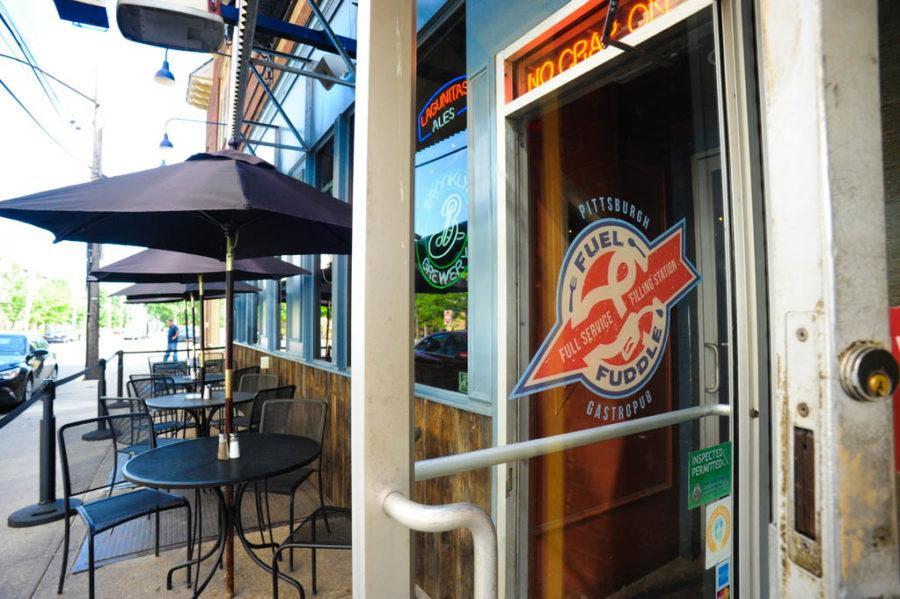Oakland restaurants adjust to on-site alcohol serving restrictions
Fuel and Fuddle will remain open for takeout.
July 8, 2020
Pitt students got a break from quarantine by patronizing Oakland bars in June, but with new regulations from Allegheny County, that may have made their stays at home even longer.
After COVID-19 cases sharply increased across the county over the past few weeks, the Allegheny County Health Department announced on June 28 that it would prohibit on-site alcohol consumption and on July 2 ordered the closure of “bars, restaurants, nightclubs, casinos and taverns” and cancelled all events of more than 25 people to prevent large groups of people from gathering.
“ACHD investigations of each new COVID-19 case indicate that the sudden increase in cases beginning on June 22 was due, in large part, to crowded conditions at bars, restaurants and other businesses serving alcohol,” Dr. Debra Bogen, the health department director, said.
But county spokesperson Amie Downs said given the community spread of the virus, it is difficult to pin the spike on one singular behavior pattern of the population, such as patronizing bars.
“We may never know, but we do know that many people have been lax in doing the things that they’re supposed to do — washing hands frequently, wearing masks and observing physical distancing,” Downs said.
Mike Chizmar, the co-owner of the Thirsty Scholar Bar & Grille, said his bar has remained closed during Pennsylvania’s green phase of reopening, which began on June 5. According to Chizmar, it doesn’t make sense for the bar to reopen if it can’t serve alcohol onsite.
“Any establishment that relies on at least 40% of their gross sales to come from beer or liquor sales will probably find that it’s not profitable to open without this ability,” Chizmar said. “Usually liquor and beer have larger profit margins than food, so at 50% dine-in capacity, it doesn’t make a lot of sense to open.”
Besides financial setbacks created by the county restrictions, Brandon Smith, the co-owner of Fuel and Fuddle, called the sporadic changes in regulations “frustrating.”
“Every week of my life in the past three months has changed dramatically as far as how I run my business,” Smith said. “It’s just very difficult.”
Smith said though the restaurant remains open for takeout, the closure of Fuel and Fuddle’s indoor dining area is disproportionately impacting servers.
“All the cooks and management are still working as if everything’s the same,” Smith said. “The problem is the servers are having less customers, less tables and less tips.”
He added that while Fuel and Fuddle continues to follow the regulations set by the government, he has found it increasingly difficult to run a business when there’s a lack of collective effort from other businesses to mitigate COVID-19 cases.
“In my opinion, there are few places in this city that did not follow the rules and messed it up for everybody, and now everyone’s paying the price for that and I don’t think that’s fair,” Smith said. “It’s becoming really frustrating, really hard and not profitable.”
When asked if ACHD was planning to implement more restrictions in the county to protect citizens, Downs said it depended on the source of any potential future outbreaks.
“Any restrictions would be responsive to the numbers and where cases are coming from or where case investigators learn that people are frequenting who are ill,” Downs said. “We can’t know the future.”
Chizmar said the only way the county, and the bars, will be able to return to normal is if every citizen understands their responsibility in protecting the health and safety of themselves and their community.
“Each person needs to ask themselves what they are comfortable with doing, and what they are willing to give up doing until this problem is solved,” Chizmar said.



